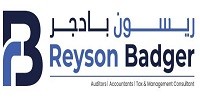The Importance of Cost Accounting

Cost Accounting – Objectives, Types & Methods
Cost accounting is the process of determining the cost of production or service, which is a key factor in decision-making. It involves calculating direct costs and indirect costs for goods manufactured or services rendered. Direct costs include raw materials, labor, overhead, and production overhead. Indirect costs are expenses like rent, power, insurance, and interest that are incurred by a company to run its operations but are not directly related to the production or delivery of a service.
Cost accounting helps managers make better financial decisions. It can be used by managers to set prices based on production costs, control the budget, and forecast future cash requirements. It also aids decision-making around production control and raw material purchasing.
In this blog, we will cover everything you need to know about cost accounting - concept, objectives, types of accounting methods it uses, and benefits it provides!
What is Cost Accounting?
Cost accounting involves analyzing and reporting all costs related to a product or service in order to make better financial decisions. The objective is to improve business net profit margins and inform budgeting decisions, and pricing strategies. This information can help organizations control costs and improve overall cost efficiency, which in turn can improve profitability. Assigning costs to different aspects of the business can help identify opportunities to reduce costs and increase efficiency.
It is important to note that cost accounting is mainly for internal use by management to make informed decisions about the business. The methods used can vary depending on the industry and business operations. Cost accounting plays a critical role in strategic planning and can provide valuable insights into the financial health of a company. Proper cost accounting practices are essential for businesses to thrive and make sound financial decisions.
Objectives of Cost Accounting
Cost accounting is a vital aspect of managerial accounting that helps businesses to monitor and control their costs efficiently.
- The primary objectives of cost accounting include cost allocation, cost examination, budget preparation, legal compliance, and decision-making.
- Cost accounting methods include standard cost accounting, target costing, and process costing.
- By analyzing a company's overall production costs for its products or services, cost accounting can help identify profitable items and assist in pricing and budgeting decisions.
- Through cost accounting, organizations can track their spending and earnings to evaluate their cost structure and improve profitability and efficiency.
Types of Cost Accounting
Cost accounting is a branch of accounting that involves the process of recording, analyzing, and reporting the costs incurred by a business. The main objective of cost accounting is to provide information to management that helps in making informed decisions regarding cost control, pricing, and profitability.
There are several types of cost accounting that businesses use, including:
- Job costing: This method involves tracking the costs associated with a specific job or project. It is commonly used in industries such as construction, manufacturing, and consulting.
- Process costing: This method involves tracking the costs of a production process, such as a manufacturing line. It is commonly used in industries such as chemical, food processing, and pharmaceuticals.
- Activity-based costing (ABC): This method involves identifying the activities that a business performs and allocating costs to those activities based on their usage. It is commonly used in industries where overhead costs are high, such as service-based businesses.
- Standard costing: This method involves setting standard costs for various activities and comparing them to actual costs. It is commonly used in manufacturing industries where there are standard procedures for producing goods.
- Marginal costing: This method involves analyzing the costs and revenues associated with each product or service. It is commonly used in pricing decisions and short-term profit analysis.
- Life cycle costing: This method involves analyzing the costs associated with a product or service over its entire life cycle, from development to disposal. It is commonly used in industries where products have a long lifespan, such as automobiles and electronics.
The type of cost accounting method used by a business depends on the nature of its operations and the information that management needs to make informed decisions.
Methods of Cost Accounting
Cost accounting is a critical component of the accounting process. It helps businesses monitor, control spending and identify areas for improvement. To achieve these goals, cost accounting employs various methods, such as activity-based costing, standard cost accounting, and target costing. Cost accountants use tools such as job costing, process costing, and direct costing to calculate expenses.
There are four main types of cost accounting techniques: standard cost accounting, activity-based cost accounting, lean accounting, and life-cycle costing. Each of these methods has its benefits and drawbacks, based on the business's goals and objectives. Cost accounting originated during the industrial revolution to track business costs and make informed decisions.
Modern cost accounting has improved accuracy in costing and overcome the limitations of financial accounting. As a result, businesses today can rely on cost accounting to make informed decisions and improve their operations.
Benefits of Cost Accounting
Cost accounting is a branch of accounting that is concerned with the process of capturing, analyzing, and reporting on the costs associated with producing goods or services. There are many benefits of cost accounting, including:
- Improved cost control: By tracking and analyzing costs, cost accounting allows companies to identify areas where they can reduce costs and improve efficiency.
- Accurate pricing: Cost accounting provides information about the costs of producing a product or service, which helps companies set prices that are competitive and profitable.
- Better decision-making: Cost accounting provides valuable information that helps managers make informed decisions about pricing, product mix, and production processes.
- Enhanced financial reporting: Cost accounting provides detailed information about costs that can be used in financial reports, helping investors and stakeholders to better understand the financial health of a company.
- Improved budgeting and forecasting: Cost accounting helps companies to create accurate budgets and forecasts by providing detailed information about costs.
- Better inventory management: Cost accounting helps companies to understand the costs associated with holding inventory, which can help them to optimize their inventory levels and reduce costs.
- Improved performance measurement: Cost accounting provides a framework for measuring the performance of different products, services, and departments within a company, which can help to identify areas for improvement.
Cost accounting is a valuable tool that helps companies to manage costs, make informed decisions, and improve their financial performance.
How can cost accounting be used to make more informed business decisions?
Cost accounting is an essential tool for businesses looking to make more informed decisions. It can help maximize efficiency and increase profitability by accurately recording, examining, and summarizing money spent on a process, product, or service.
With cost accounting, management can make strategic decisions on where to cut back or increase costs in order to improve their bottom line. More efficient production processes can lead to increased profits, so having the data provided by cost accounting is invaluable in helping make those decisions.
Cost accounting also reveals ways to improve efficiency and save money. By examining a company’s processes, it can identify areas where resources are wasted or expenses can be reduced, ultimately resulting in greater profits. With this information in hand, businesses can make the most informed decisions possible to ensure the longevity of their organization.
Conclusion
Cost accounting is a vital process that helps measure the financial performance of an organization. It also helps in decision-making and cost control. Besides, cost accounting also helps in comparing the costs of production for different processes or methods and choosing the most cost-effective one.
While financial statements are generated from the cost accounting process, cost accounting can be used for various other functions as well. For instance, it can help in budgeting, planning production quantities, and deciding pricing strategies. In short, cost accounting is a must-have function to ensure successful business operations.

